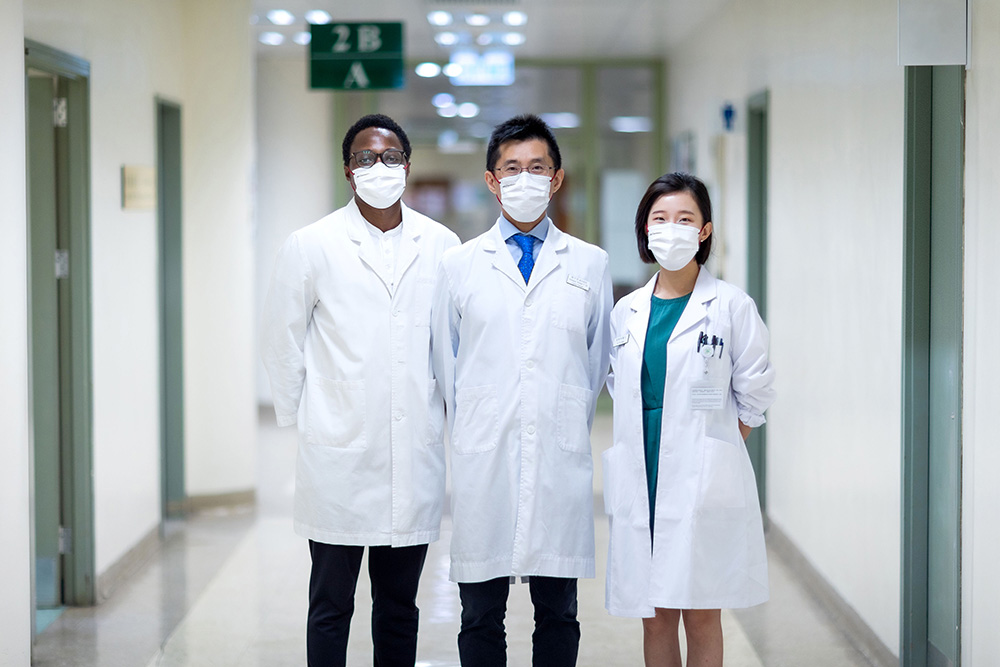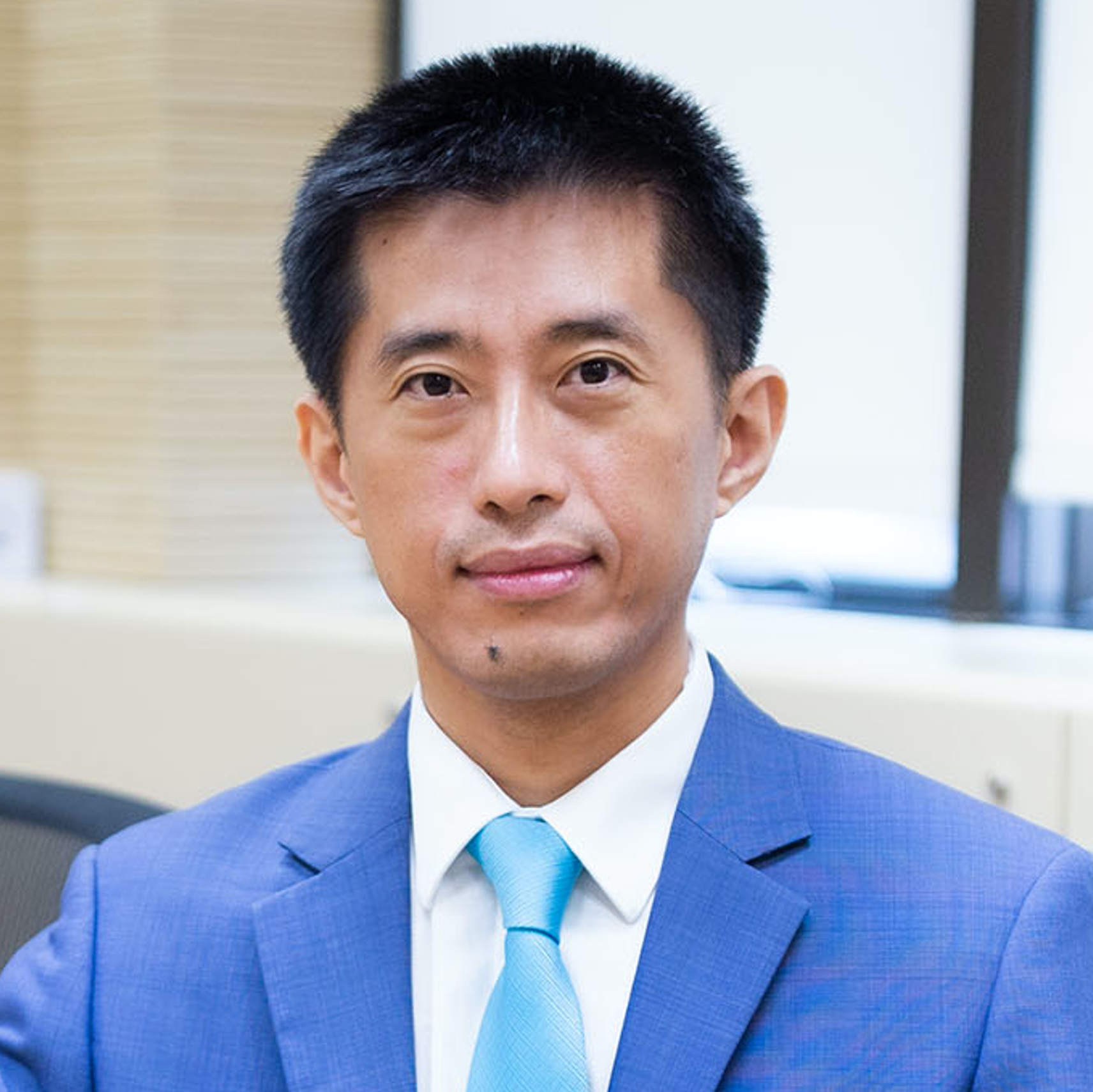May 2023 | Volume 24 No. 2
Oral Surgeons Bring AI Tool to Nigeria
In 2022, researchers in the Faculty of Dentistry led an international team to develop an AI web tool that could predict patients’ risk of developing oral cancer. The tool, based on the AI algorithm DeepSurv, had a 95 per cent accuracy rate on a cohort of more than 700 Hong Kong patients, and an 82 per cent rate on a British cohort of 382 patients using slightly different data.
But achieving those good results was not the only aim for its developers. “We saw potential for the web tool to be impactful in regions with finite resources,” said Professor Richard Su, Division Coordinator and Clinical Professor in Oral and Maxillofacial Surgery who led the project.
Drawing on the Nigerian roots of Professor Su’s PhD student, Dr John Adeoye, a team comprising Professor Su, Dr Adeoye, and Dr Jane Pu decided to introduce their tool to the country this year through a three-part knowledge exchange project.
The first goal is to educate dentists on the role of AI in predicting oral cancer risk, second is to develop a model using Nigerian data, and third is to educate the population, especially in rural communities, on using the Nigerian version of the tool.
The attraction of the tool is that it can be used by non-specialist dentists (there are few specialists in rural Nigeria) as well as patients. Oral cancer is preventable if detected early but requires continual follow-up by experts.
Helping dentists and patients
“Patients tire of having check-ups and biopsies and that can lead to poor help-seeking behaviour. They may not return again until the cancer is at a late stage. The tool aims to avoid this,” said Dr Adeoye.
The tool is based on clinical and pathological inputs of a patient’s condition, particularly the white lesions in the mouth that are often present for years before turning into cancer, as well as multiple other factors such as demography and past treatments. The Hong Kong version of the AI tool can predict if someone will develop oral cancer up to 10 years or more in the future. The Nigerian version will also likely include such factors as kola nut usage and consumption of herbal concoctions, which are linked to increased cancer risk.
While the tool has not yet undergone a randomised clinical trial and is mainly intended at this stage to support clinical decisions, both dentists and patients can use it with some training. For dentists, it can narrow down which patients require follow-up.
“For patients, if they are at high risk, it can motivate them to do follow-up and also self-examination with a mirror, although this is not recommended unless people are living in areas with few dental resources,” Dr Adeoye said.
Partners on the ground
HKU has partnered with two organisations in Nigeria on the project – the College of Medicine at the University of Lagos and the Cleft and Facial Deformity Foundation, which between them have extensive experience in training dentists and running outreach projects. They have now received training on the AI model and data collection and have started training dentists. The target is to educate about a quarter of dentists in the cities of Lagos and Abuja by the end of the year, who can then bring the AI tool deeper into the community.
“The idea is that once these organisations have this knowledge, they can still continue to reach more dentists when they have the chance. We are not just empowering them as a one-off,” Professor Su said.
Later this year, once the model is validated with Nigerian data, it will be brought into rural communities in six regions to raise awareness among dentists and residents there of oral cancer risk and the need for screening. Since the country has high internet penetration, Dr Adeoye said it should be easy to attract users.
The project is not only a team effort between HKU scholars and their partners in Nigeria. It also represents a successful culmination for Dr Adeoye, who decided to pursue his PhD at HKU in 2019 because of the Faculty’s interest in promoting clinical AI. “There were good opportunities here compared to other parts of the world so the decision was a no-brainer,” he said.

The HKU team implementing the knowledge exchange project in Nigeria. From left: Dr John Adeoye, Professor Richard Su and Dr Jane Pu.
We saw potential for the web tool to be impactful in regions with finite resources.

PROFESSOR RICHARD SU

